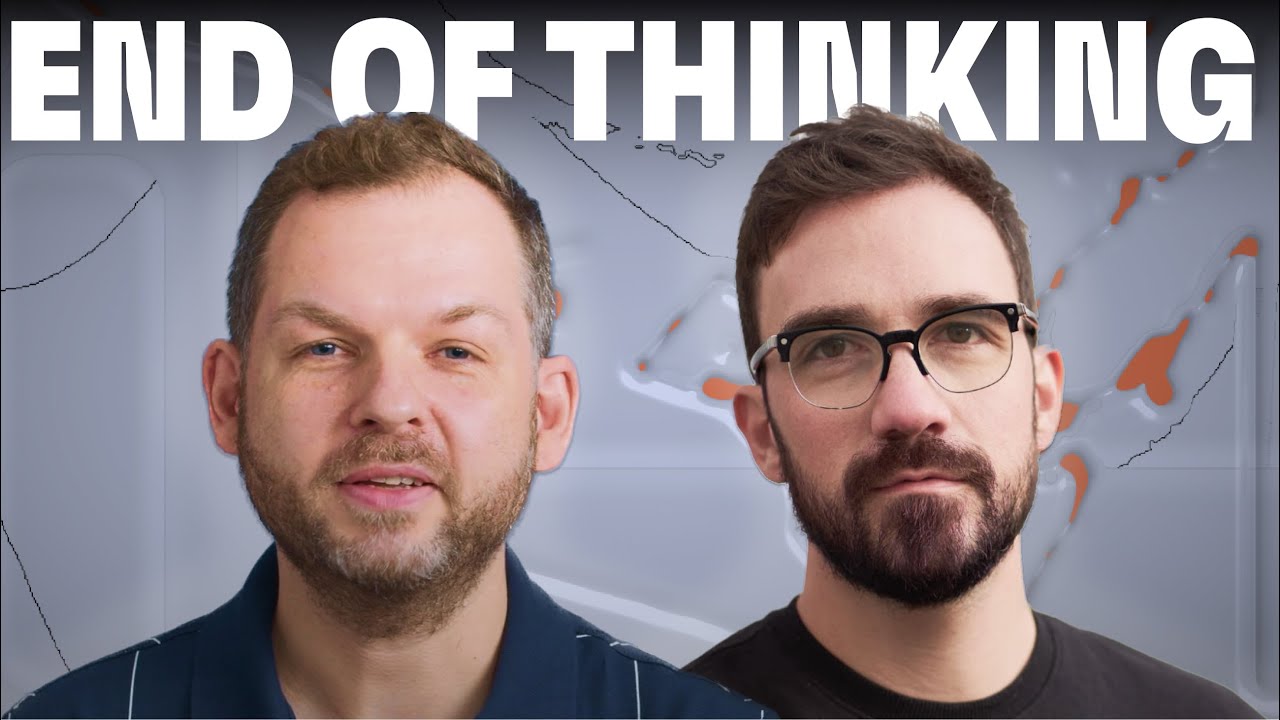Martin and I as guests at TAAALKS
Artificial intelligence is now having the big breakthrough: Dalle2 and ChatGPT have given us a small glimpse in recent months of what we can expect in the next few years. AI will gradually take over routine tasks of human thinking at an enormous pace, which will have huge consequences for a large part of our working world and our culture. The spectrum of feelings is very broad and mixed.
In December 2022, I was in Munich with Martin Lorenz for a joint interview with Maximilian Heitsch from Moby Digg / TAAALKS. One main focus was on the latest developments from the world of AI: What does artificial intelligence mean for the topic of design? What feelings are driving us? Why do we view the topic critically and what does that mean for our teaching? Is this the end of human thinking?
What do you think about it? Feel free to leave a comment!
Notes
In our interview with TAAALKS, Martin said a sentence that flipped a switch for me. He said, “If we unlearn to write we’ll unlearn to think because thinking and writing is deeply connected.
With that, he addressed a core problem that we will get in the future with artificial intelligence. The more cognitive tasks we hand over to the machine, the more we unlearn these skills. In doing so, we lose a huge part of our human sovereignty to the computer. This is insanely dangerous and the consequences are impossible to estimate.
Now you could argue that artificial intelligence also brings great new possibilities and experiences. That is true! But those who will profit from it are only very few. The damage that will be caused to many is probably out of proportion to the positive effects for a small group of people.
I would agree anytime to hand over boring, repetitive tasks to an AI. Sure! What worries me is the ignorance of many people towards basic values of human life. So folks, let’s think about what exactly we’re dealing with instead of driving our world even further into the wall.
Here comes the thought I would like to fix: The more complex algorithms become, and AI algorithms are usually so complex that they cannot be understood by any human being in the world, the more unpredictable the consequences are. Creative coding, or writing code with artistic intent, is very valuable for precisely this reason. Because writing code helps us understand, within a teachable framework, how computers work and even think. Keyword: Computational Thinking.
Related
 Sam Griffith connects Creative Coding with Enviromentalism
Sam Griffith connects Creative Coding with Enviromentalism
In this post I’d like to introduce you to Sam Griffith, a talented graphic designer based in Detroit, to discuss […]
 A conversation with Talia Cotton
A conversation with Talia Cotton
During OFFF Festival here in Barcelona, many interesting people come around! This interview with Talia Cotton came about almost by […]
 A conversation with Anna Shams Ili
A conversation with Anna Shams Ili
Hi Anna! It was super nice to meet you at the PCD CPH, I really liked your talk in which […]
 A conversation with Lisa Apers
A conversation with Lisa Apers
Hi Lisa, it was amazing to meet you at Processing Community Day in Copenhagen! For those who don’t know you: […]
 A conversation with Tomáš Kostrzeva
A conversation with Tomáš Kostrzeva
Hi Tomáš, thanks for answering a few of my questions! Let’s start with the basics. Who are you, and what […]
 Instagram-Live with Lena Weber
Instagram-Live with Lena Weber
I met Lena Weber at a workshop at International Assembly, after that we became friends and she helped me over […]
 A conversation with Raphaël de Courville
A conversation with Raphaël de Courville
A few weeks ago I had the honor to meet Raphaël de Courville in person at the audivisual jam at […]
 Ksawery Kirklewski on his Symphony in Acid
Ksawery Kirklewski on his Symphony in Acid
For me, it’s by far the most inspiring project of the last few years: “Symphony in Acid”, a collaboration between […]
